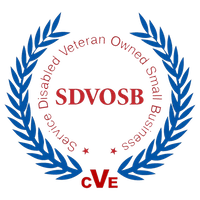
One of the toughest tasks of leadership is the difficult conversation. That’s why we don’t have them. When team members consistently underperform, we tend to compensate through doing their work for them, and consciously or unconsciously making the rest of the team take up the slack. Either way, we set the conditions for poor morale, low standards, and losing our good people while we underwrite the substandard.
So how do we get beyond this level of tolerating the mediocre in our ranks? Here are some proven tools for your toolkit to overcome the resistance and inertia of avoiding the hard conversations:
- Commit to the task. Review your performance assessment system. If it doesn’t have clear objectives for the team, take the opportunity to revise it. Survey your team to see how they perceive the current system and what recommendations they have for updating the way people are evaluated.
- Set a timeline for implementing your revised system, and stick with it. Or, if you’ve got a system in place, set a timeline for making sure your leaders understand and are following it. Get external help if you need it to discover some new best practices.
- Use the technique of “Help me understand….” instead of “I understand….” When you have these tough conversations with those that aren’t getting it done. Use a question architecture for these conversations. Ask him or her how they think they are doing in terms of their performance, and what their personal and professional goals are. Many times you’ll find out things you didn’t know before, and the person you’re speaking with may well reveal that they know they are underperforming.
Make sure you document these conversations. Set measurable objectives for what happens next. When there is a positive result for one of the steps you discuss during your counseling session, make sure you reinforce the small wins. People rarely seek to become mediocre — they’ll usually respond better to the higher pats on the back versus those that are lower.
Be prepared for this realignment of your performance assessment toolkit to take several months to stick. Persistence is key here. The good news is that everyone in the organization will soon take notice. Some of the poor performers will self-select; that is, they will leave voluntarily once they are clearly identified and the tough conversations begin. But the rest of your team will rally around your leadership in a variety of ways: retention will increase, you’ll see fewer bad hires (particularly if you start to involve the peers of a potential hire in the screening process).
Set yourself on a course to teach your leaders the value of having the difficult conversations quickly when they’re needed. Time is a critical factor in correcting behaviors and attitudes that are out of alignment with your mission, intent, values, and culture. Great leaders act; they have a bias for action when it comes to communicating with their teams. Make your commitment to the tough conversations today; you’ll be impressed with the results.
Enjoy the journey!
You can learn more about the Level 5 leadership philosophy in my book “We’re All In.” You can get a copy of the first chapter for free here.
If you’d like a full copy of the entire book, you can get it here.
Enjoy the journey!
Did you find this blog post beneficial? If so, please share it with your audience using one of the choices below. It’ll just take a second, but could improve someone’s work habits for a long time to come.





